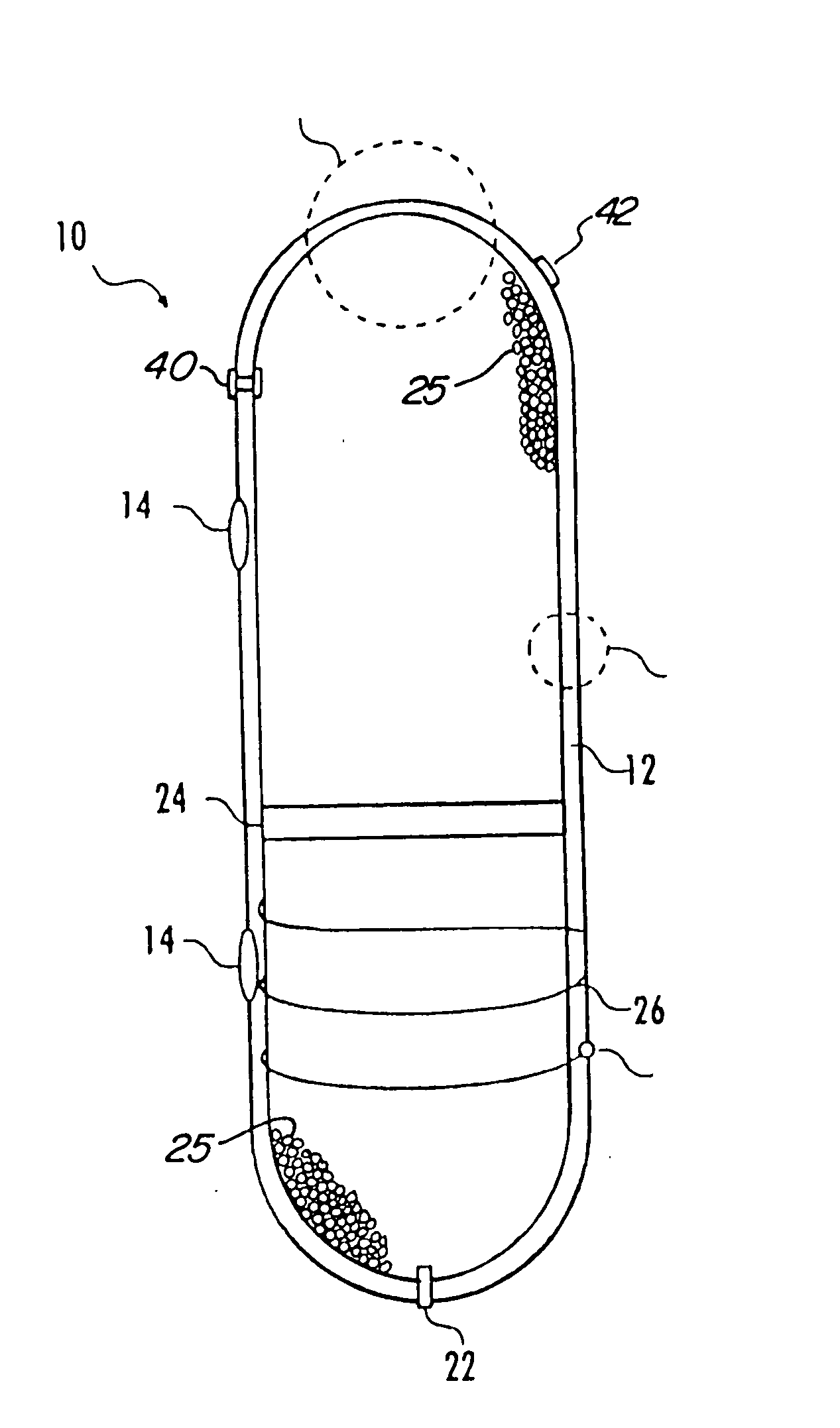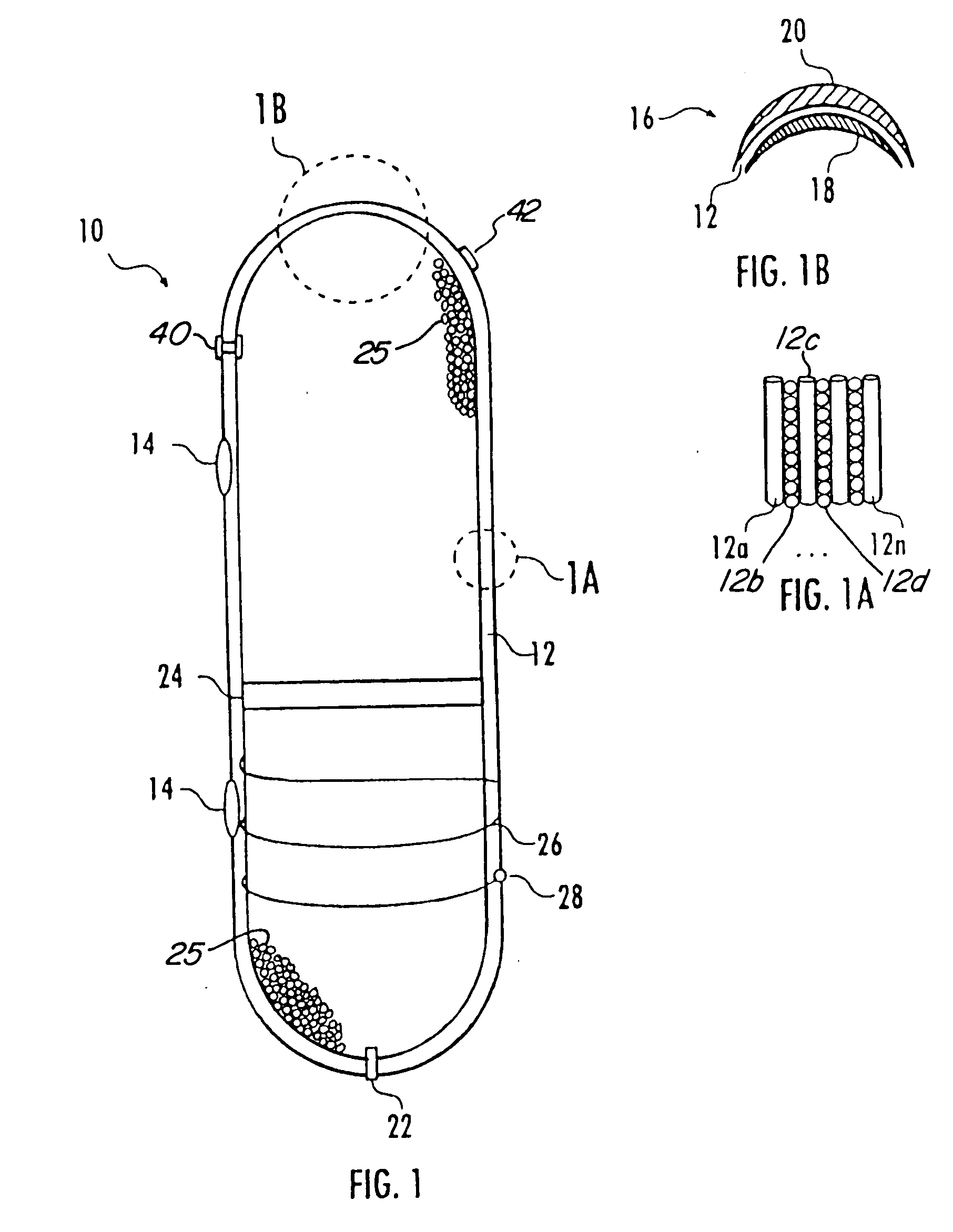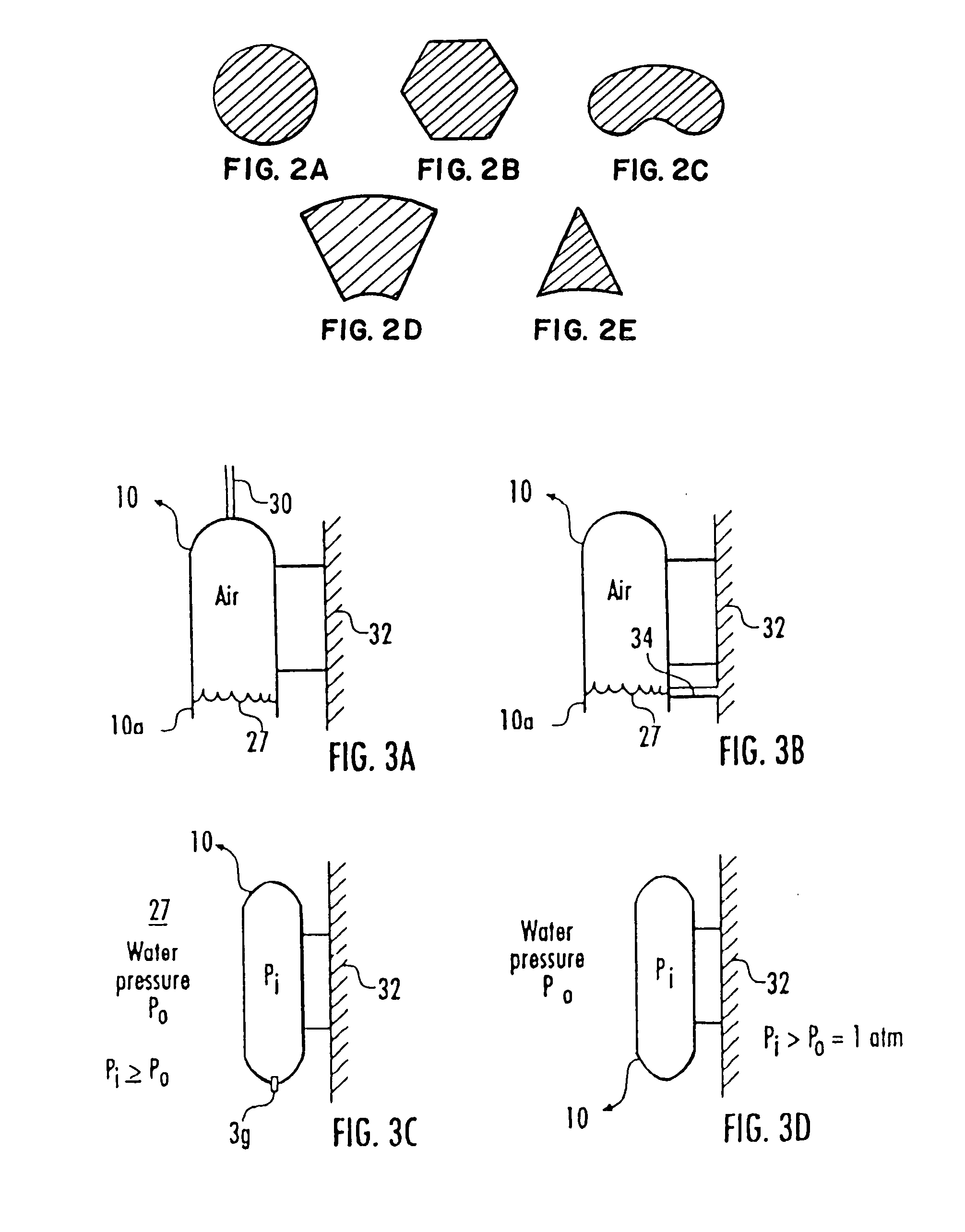Engineered material buoyancy system and device
a technology of buoyancy system and engineered material, which is applied in the direction of special-purpose vessels, vessel construction, and borehole/well accessories, etc., can solve the problems of prohibitively high cost of stiffening and avoiding excessive and damaging dynamic responses to wave forces, and inconvenient use of conventional offshore oil production methods using fixed truss platforms, etc., to achieve more cost-effectiveness and reduce the loss of buoyancy with tim
- Summary
- Abstract
- Description
- Claims
- Application Information
AI Technical Summary
Benefits of technology
Problems solved by technology
Method used
Image
Examples
Embodiment Construction
[0075] According to one example embodiment of the invention, airtight composite buoyancy modules (CBMs) provide buoyancy to attached objects submerged underwater. Different sizes and shapes of CBMs are attached in various embodiments to, for example, production risers, drilling riser, catenary risers, air cans, and stem pipe.
[0076] In the example embodiments illustrated, buoyancy is provided by trapping air inside structures of engineered materials (for example: glass fiber / polymeric resin, carbon fiber / polymeric resin, hybrid glass / carbon fiber polymeric resin, engineered rubber reinforced with nylon or steel fibers).
[0077] Referring now to FIG. 1, a CBM 10 is seen, having a wall 12 of layers 12a-12n (seen in FIG. 1a) of engineered materials. Various of the layers 12a-12n have differing functions. For example, some of the layers 12b and 12d comprise substantially reinforced hoop layers (substantially horizontal orientation of fiber) to resist internal and external pressure. Other...
PUM
| Property | Measurement | Unit |
|---|---|---|
| Water depths | aaaaa | aaaaa |
| Water depths | aaaaa | aaaaa |
| length | aaaaa | aaaaa |
Abstract
Description
Claims
Application Information
 Login to View More
Login to View More - R&D
- Intellectual Property
- Life Sciences
- Materials
- Tech Scout
- Unparalleled Data Quality
- Higher Quality Content
- 60% Fewer Hallucinations
Browse by: Latest US Patents, China's latest patents, Technical Efficacy Thesaurus, Application Domain, Technology Topic, Popular Technical Reports.
© 2025 PatSnap. All rights reserved.Legal|Privacy policy|Modern Slavery Act Transparency Statement|Sitemap|About US| Contact US: help@patsnap.com



